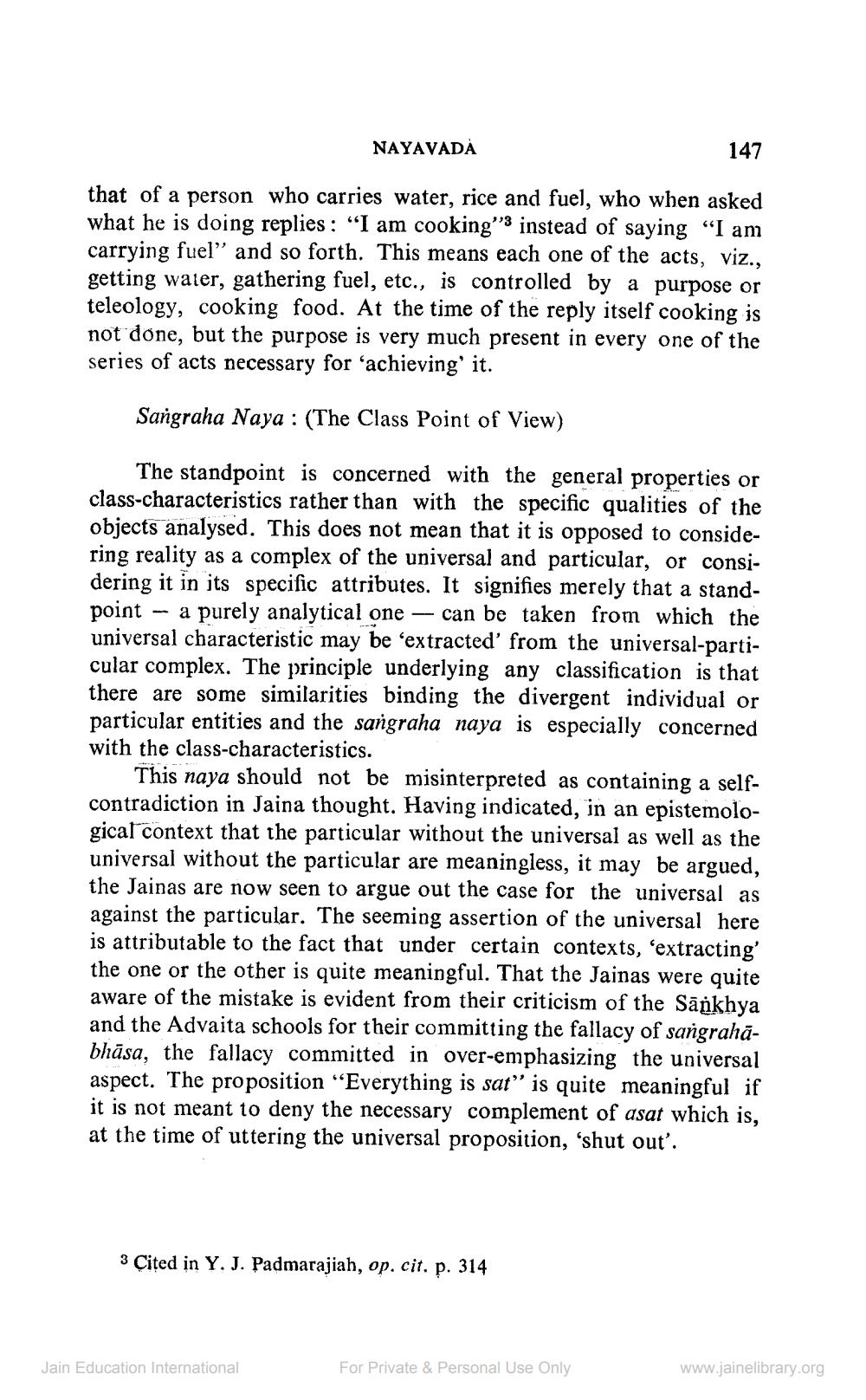________________
NAYAVADA
147
that of a person who carries water, rice and fuel, who when asked what he is doing replies: “I am cooking''3 instead of saying “I am carrying fuel" and so forth. This means each one of the acts, viz., getting water, gathering fuel, etc., is controlled by a purpose or teleology, cooking food. At the time of the reply itself cooking is not done, but the purpose is very much present in every one of the series of acts necessary for ‘achieving' it.
Sangraha Naya : (The Class Point of View)
The standpoint is concerned with the general properties or class-characteristics rather than with the specific qualities of the objects analysed. This does not mean that it is opposed to considering reality as a complex of the universal and particular, or considering it in its specific attributes. It signifies merely that a standpoint - a purely analytical one — can be taken from which the universal characteristic may be 'extracted from the universal-particular complex. The principle underlying any classification is that there are some similarities binding the divergent individual or particular entities and the sangraha naya is especially concerned with the class-characteristics.
This naya should not be misinterpreted as containing a selfcontradiction in Jaina thought. Having indicated, in an epistemological context that the particular without the universal as well as the universal without the particular are meaningless, it may be argued, the Jainas are now seen to argue out the case for the universal as against the particular. The seeming assertion of the universal here is attributable to the fact that under certain contexts, 'extracting' the one or the other is quite meaningful. That the Jainas were quite aware of the mistake is evident from their criticism of the Sānkhya and the Advaita schools for their committing the fallacy of sangrahābhāsa, the fallacy committed in over-emphasizing the universal aspect. The proposition “Everything is sat” is quite meaningful if it is not meant to deny the necessary complement of asat which is, at the time of uttering the universal proposition, 'shut out.
3 Cited in Y. J. Padmarajiah, op. cit. p. 314
Jain Education International
For Private & Personal Use Only
www.jainelibrary.org




